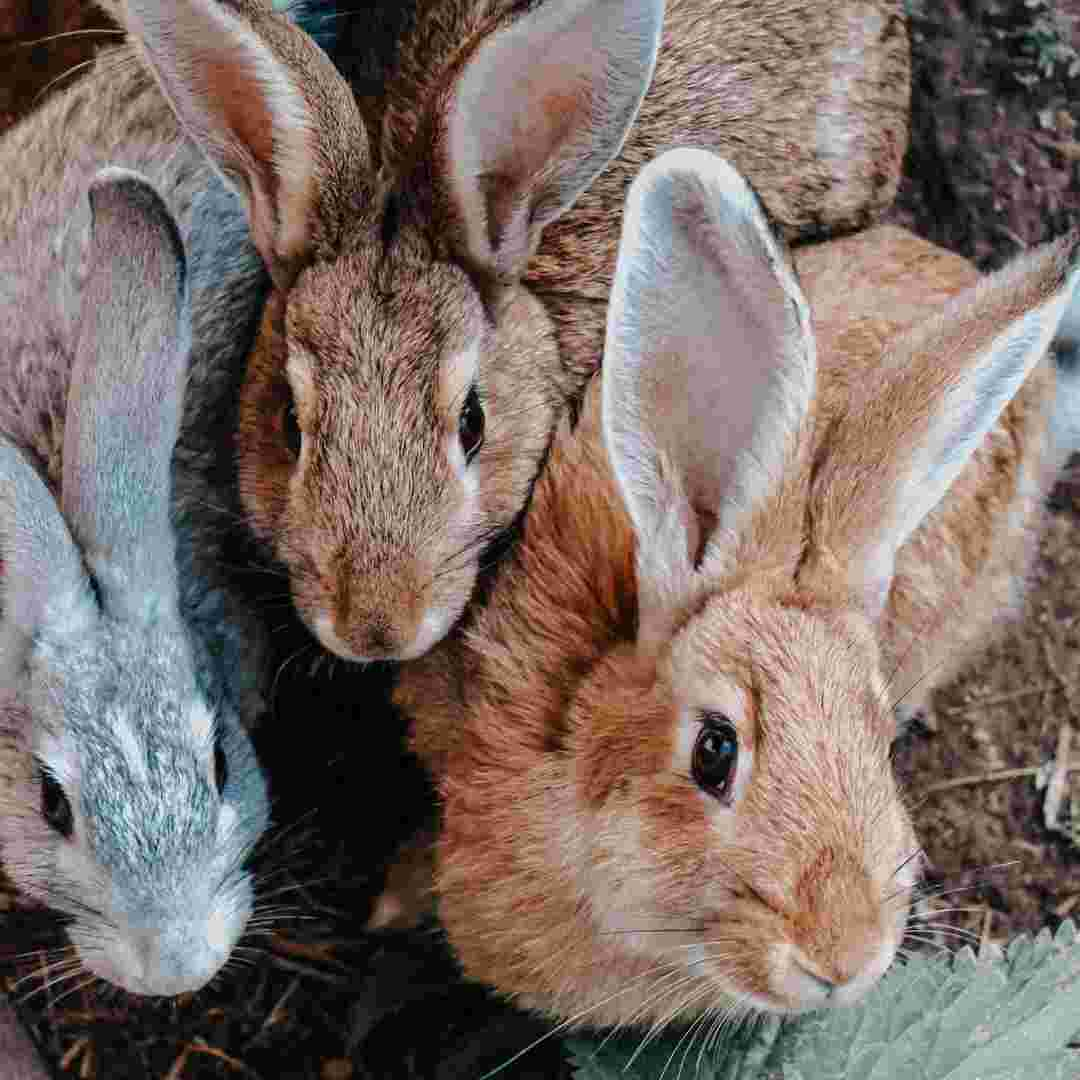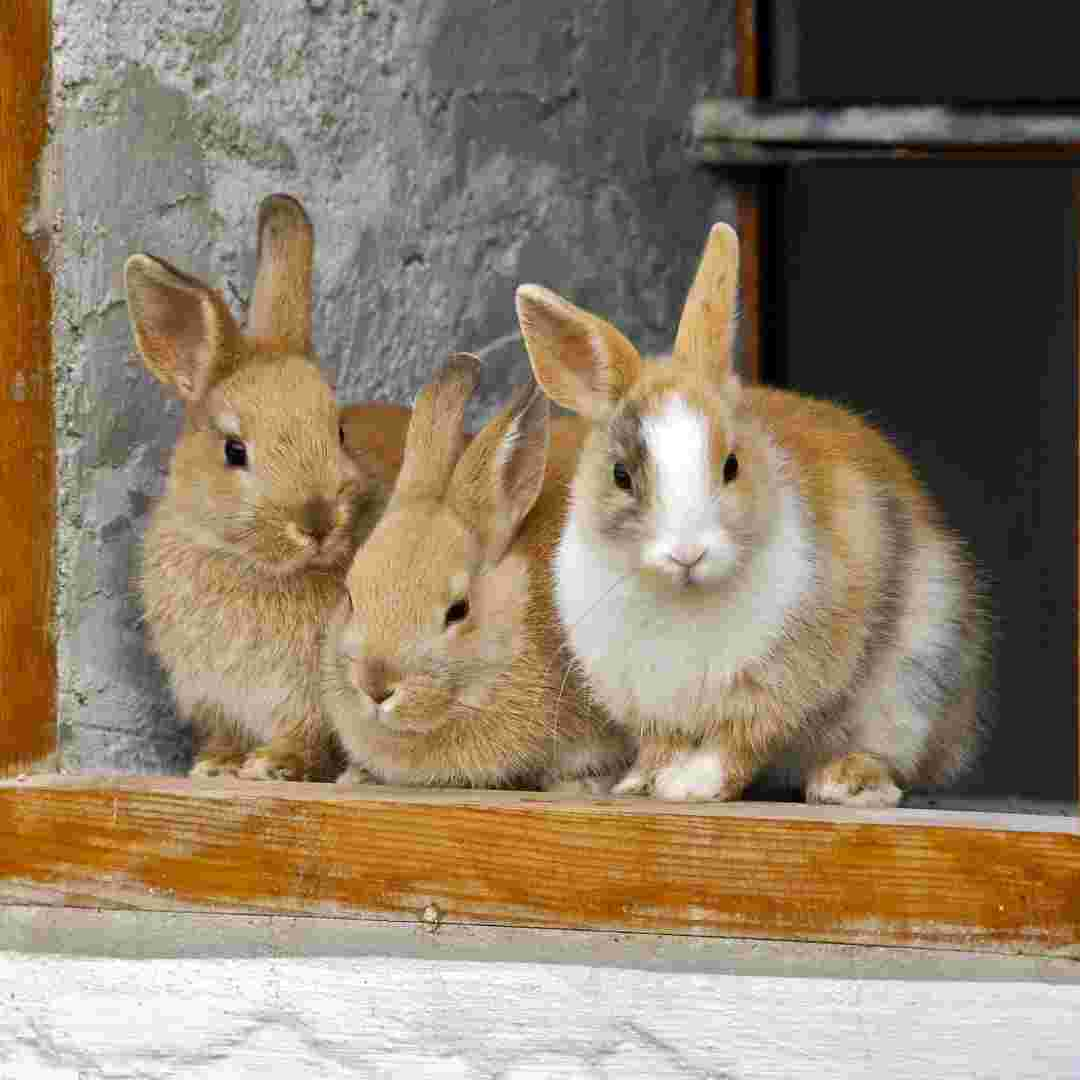Contents Table
Introduction
Growing Rabbits for Poultry Benefits
Rabbit Care in Poultry
Rabbit Breeds for Poultry
Pros and Cons of Rabbit Poultry Farming
Best Rabbit Poultry Management Practises
Q&A
Conclusion
Introduction
Small-scale farmers and homesteaders are increasingly raising rabbit poultry. Rabbits are easy to care for and provide lean, nutritious, and sustainable protein. Rabbits may be produced in a variety of conditions and require little space, making them ideal for meat production. Housing, feed, and health care for meat rabbits are covered in this article.
Growing Rabbits for Poultry Benefits
There are many benefits to raising rabbits for poultry. Rabbits are easy to keep for and require little space, making them perfect for small-scale poultry farming. Rabbits breed quickly, thus a few can become many. This makes them perfect for commercial poultry farmers.
Rabbits are high in protein. They are healthier than other poultry since they have less fat and cholesterol. Rabbits are a sustainable protein source since they can be raised in many conditions and use few resources. This makes them excellent for eco-conscious consumers.
Finally, breeding rabbits for poultry can boost your income. Rabbits are sold for meat, fur, and pets. They are ideal for people seeking extra income. For individuals who want to breed a certain rabbit breed, rabbits can be bred for size or colour.
Overall, growing rabbits for poultry can boost your income, lessen your environmental effect, and provide a healthy protein source. Rabbits are great for small-scale poultry farmers since they require little room and resources.
https://youtu.be/r8FgVbq2kYQ?si=ptwrSesPokttvgxd
Rabbit Care in Poultry
Growing rabbits in a poultry setting can be gratifying, but it requires careful planning and management to keep the animals healthy. Here are poultry bunny care recommendations.
1. Ensure security. Rabbits need a safe, big enclosure to explore. Sharp edges and other risks should be avoided in the enclosure. The shade and ventilation should be enough.
2. Give rabbits a balanced diet. Hay, fresh vegetables, and a little pellets are rabbits' ideal diet. Avoid sugar and processed foods, which can harm them.
3. Supply fresh water. Rabbits always need clean water. Change the water everyday and keep the dish shallow because rabbits can drown.
4. Watch for rabbit disease. Rabbits are susceptible to various infections, so watch for lethargy, loss of appetite, and diarrhoea. Consult a vet immediately if you observe these indicators.
5. Keep enclosures clean. Clean the enclosure periodically to prevent disease. Replace filthy bedding with new.
Following these suggestions will keep your bunnies healthy and happy in their poultry setting. Rabbits are great pets with proper care.
Rabbit Breeds for Poultry
Rabbits are easy to care for and offer fresh eggs, making them popular with poultry owners. Some rabbit breeds are unsuitable for poultry. We shall discuss poultry-friendly rabbit breeds and their demands here.
The Californian rabbit is the first poultry-friendly rabbit. Its white fur and stature distinguish this breed. They are calm and simple to manage. As prolific egg layers, they are a wonderful choice for people seeking a continuous supply.
The New Zealand White is the next poultry-friendly rabbit. This breed is big and white-furred. They are calm and simple to manage. As prolific egg layers, they are a wonderful choice for people seeking a continuous supply.
The Dutch are the third poultry-friendly rabbit breed. Their black and white fur and petite dimensions distinguish this breed. Activity and ease of handling are also key traits. As prolific egg layers, they are a wonderful choice for people seeking a continuous supply.
Flemish Giants are poultry-friendly rabbits number four. This breed is big and gray-furred. They are calm and simple to manage. As prolific egg layers, they are a wonderful choice for people seeking a continuous supply.
The Silver Fox is the fifth poultry-friendly rabbit breed. This breed is big and silver-furred. Activity and ease of handling are also key traits. As prolific egg layers, they are a wonderful choice for people seeking a continuous supply.
In conclusion, five rabbit breeds are poultry-friendly. Californian, New Zealand White, Dutch, Flemish Giant, and Silver Fox. Each breed has its own demands and traits, so explore them before choosing.
Pros and Cons of Rabbit Poultry Farming
Rabbit Poultry Farming Benefits
1. Rabbit poultry farming is cheap. Rabbits require little room and equipment and are cheap to buy and keep. This makes them perfect for beginning small-scale producers.
2. Rabbits breed quickly and generate many offspring. This makes them ideal for farmers who want to swiftly expand stock.
3. Rabbits are also easy to care for. Hay, vegetables, and commercial rabbit feed can be fed to them in a small space.
4. Rabbit meat is healthful. Healthy eaters will love its high protein and low fat content.
Cons of Rabbit Poultry Farming
1. Rabbit farming takes tremendous time and effort. Rabbits need daily maintenance and washing and grooming.
2. Rabbits are susceptible to disease and parasites, therefore farmers must monitor and prevent them.
3. Rabbit meat isn't as popular as other poultry, so finding a market can be tough.
4. Rabbits are escape artists and hard to contain. This can make stock control difficult for farmers.
Best Rabbit Poultry Management Practises
1. Keep rabbits secure and clean. Keep the bedding clean and dry and the housing well ventilated and draft-free.
2. Give rabbits a balanced diet. Give your rabbits a variety of fresh veggies, hay, and pellets to guarantee proper nutrition.
3. Check rabbit health. If your rabbits seem sick or injured, take them to the vet.
4. Give lots of exercise. Rabbits must be mobile and explorative. Make sure they have enough room.
5. Be kind with rabbits. When handling rabbits, be kind and patient because they can be scared.
6. Trim rabbit nails. Nail length can cause pain and harm.
7. Neuter your rabbits. It will minimise aggression and avoid undesired litters.
8. Challenge your mind. To keep healthy and happy, rabbits must explore and play.
9. Keep rabbits safe from predators. Keep rabbits in a safe place from predators.
10. Get to know bunnies. Spend time with your bunnies and learn their characteristics. This helps you understand their needs and deliver the greatest care.

Q&A
1. Is a rabbit poultry?
No, rabbits are not poultry. Chickens, ducks, geese, and turkeys are poultry.
2. What distinguishes rabbits from poultry?
Rabbits are mammals, but poultry are birds. Rabbits are smaller and eat and behave differently than birds.
3. Are rabbits and poultry related?
No, rabbits and poultry are unrelated. While both animals, they are from separate classes.
4. Can rabbits and poultry coexist?
Rabbits and poultry shouldn't coexist. Rabbits are prey and fowl are predators, thus they could fight.
5. Are rabbits and poultry eaten?
Rabbits and poultry are eaten. Some civilizations eat rabbit, and many diets include fowl.
Conclusion
Rabbits are not poultry, yet they are popular meat and fur sources. As pets and in lab research. Treat rabbits with respect and care because they have distinct requirements and traits.
